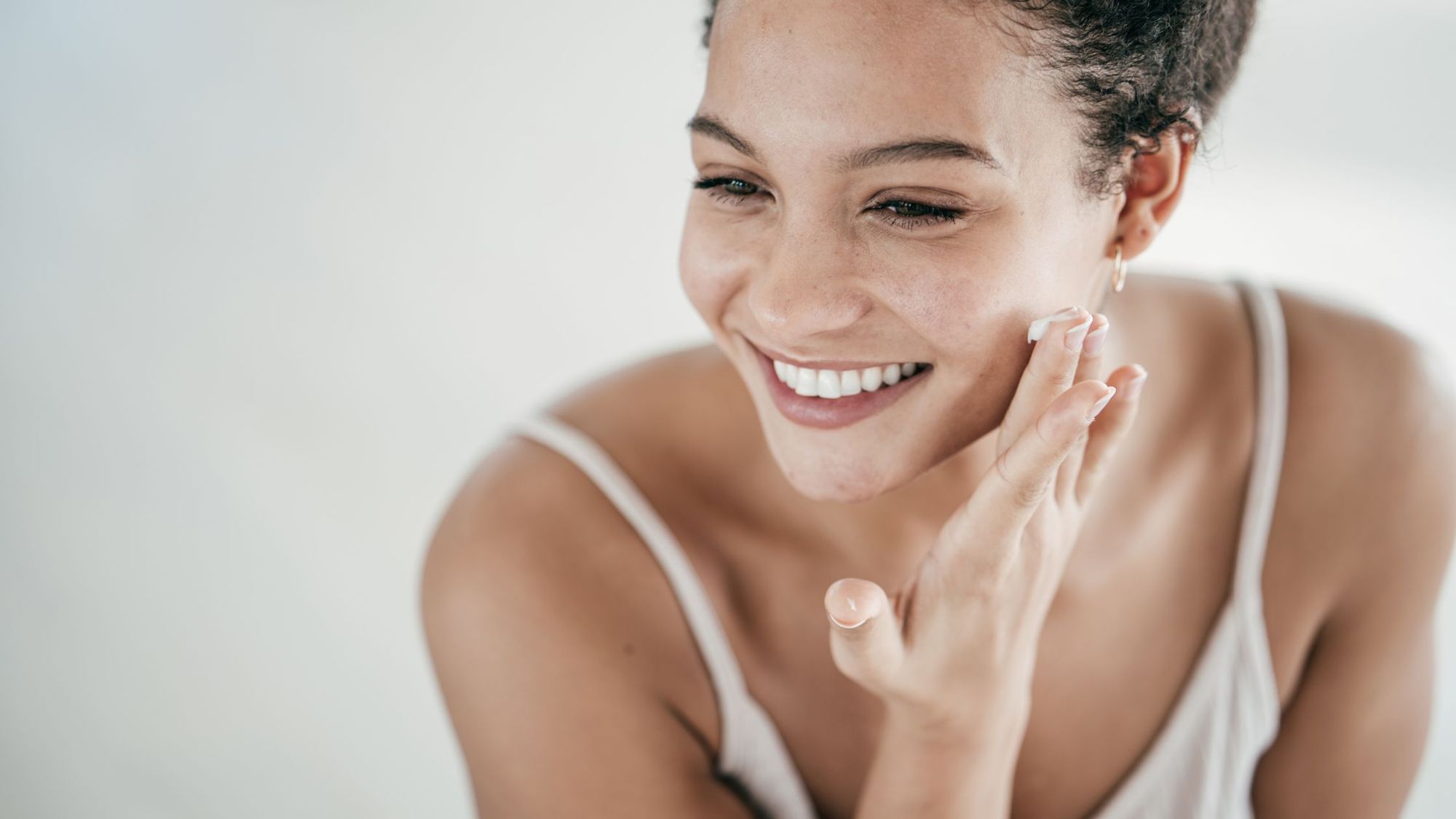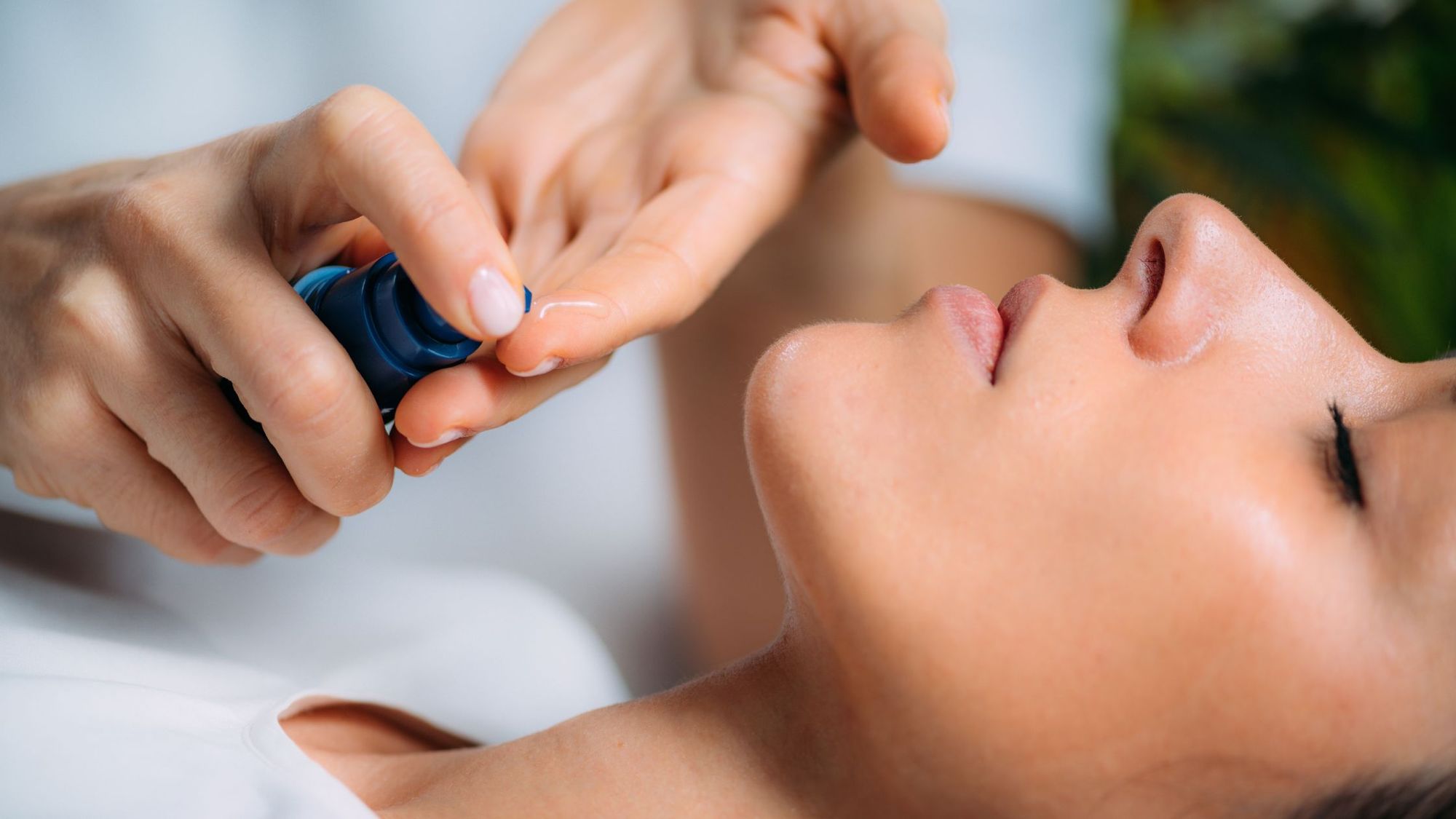
Many skin experts consider retinol as a potent skincare product to fight aging. Retinol is a type of retinoid, which is a derivative of vitamin A, and it’s most commonly known for fighting the signs of aging skin and making skin appear more youthful.
Vitamin A could come from a natural ingredient, such as fat-soluble vitamins that are commonly found in carrots, squash, and sweet potatoes, or be synthetically produced in a lab. Because of its intrinsic qualities, retinol contains effective antioxidant properties to fight free radicals, potentially leaving you with more youthful, glowing skin.
With all its potential skin benefits, it’s no wonder why many dermatologists or skin experts favor both prescription-strength and over-the-counter (OTC) retinol-infused products like serums, eye creams, and night creams. Many studies attest that retinol promotes faster skin cell regeneration and renewal. Consequently, since retinol promotes rapid skin turnover, it can improve skin texture, boost collagen formation, fight wrinkles, lighten dark spots, and help with acne.
That said, retinol cannot completely prevent or reverse aging, but it can minimize skin issues associated with growing older. Although retinol is the gold standard for anti-aging that works well for many people, it is not an absolute must-have or non-negotiable for everyone.
Retinol won’t work for everyone. Proceed with caution when it comes to this powerhouse and refrain from applying it haphazardly on your skin. Not all skin types can handle this ingredient because it exacerbates skin dryness, which, for example, could be problematic for people with eczema. As with anything beauty-related, one size does not fit all. Learn more about topical retinol below, to find out if it should be added to your skincare routine.

Who May Not Be Able to Tolerate Retinol?
It’s critical to point out that people with normal skin types are recommended to slowly integrate topical retinol products into their routine. The idea is that individuals must gradually build a tolerance for this powerful active ingredient.
Unpleasant side effects such as skin dryness or purging typically comes out and ceases after four weeks. However, certain people may not be able to tolerate the side effects of retinol creams at all.
The following people are advised to avoid or proceed with caution when it comes to retinol:
Be Careful if You’re Pregnant or Breastfeeding
Doctors recommend stopping both oral and topical use of retinol for pregnant and nursing mothers. Even those who are trying to conceive are advised to take precautions. Although retinol serums are topical products, your skin will still absorb them through the pores. The chemicals will then make their way through the bloodstream, which could result in a condition called fetal retinoid syndrome.
Although this condition is rare, it may cause mental and physical defects to the fetus or growing baby. Hence, doctors advise ceasing the use of all forms of oral and topical retinoid products during pregnancy and lactation because the risk-benefit/ ratio remains questionable. Because of the potential side effects on the fetus growing in utero and a newborn, it’s best to avoid any risks.

Proceed with Caution if You Have Dry, Sensitive Skin
People with dry, sensitive skin may not benefit from retinol because they have a faulty skin barrier to start with. Dry skin lacks sebum or natural oils that moisturize skin and make it supple. If you incorporate a drying ingredient like retinol on dry skin, it may damage the already sensitive skin barrier resulting in a drier, flakey, tingly, and itchy surface.
When skin is extra dry and damaged, the usual tight skin cell arrangement is lost. As a result, this leads to external irritants permeating the skin barrier and even more moisture loss. Hence, using retinol could lead to rashes and inflammation for someone with dry skin.
Patients With Autoimmune Issues
People who suffer from autoimmune skin diseases like psoriasis, eczema, or rosacea. Psoriasis and eczema patients have excessively dry, irritated, and swollen skin. Similarly, rosacea is an inflammatory skin condition that targets the sebaceous glands resulting in extremely red and dry skin.
As noted above, it’s best for people with dry, damaged, and sensitive skin to steer clear of retinol. People with autoimmune skin diseases could suffer more inflammation with retinol. And when the skin surface is damaged, it could increase the risk of infections.
People Using AHAs and BHAs Must Be Cautious
If you incorporate retinol into your skincare regimen, it’s critical to assess what other products you’re using. When it comes to skincare mixology, you need products that complement each other to prevent over-exfoliation, excessive drying, and irritation. Dr. Shari Marchbein, a board-certified dermatologist in NYC says, “Mixing ingredients without proper knowledge on how these ingredients work and what other ingredients they may interact with will not only be a waste of money but also time. It can lead to frustration if less than the expected results are seen (or if the skin becomes irritated).”
People who use alpha hydroxy acids (AHA) and beta hydroxy acids (BHA) cannot use retinol because these products are potent exfoliants. If you pair these acids with retinol, your skin is more likely to get dry, red, and irritated. Examples of these products are:
- Glycolic acid toner
- Lactic acid
- Apple cider vinegar peels
- Alpha hydroxy acid
- Beta hydroxy acid serum
- PHA toner
- Salicylic acid toners
- C-50 blemish night treatment
You cannot use these products alongside retinol. If you don’t want to give up using them, consider applying on alternate days. Remember, retinol plus too many acids strip the skin, harm the natural skin barrier, and damage the skin’s ability to recover.
Watch Out if You Use Benzoyl Peroxide
Acne users often rely on benzoyl peroxide to purge clogged pores and prevent acne formation. In the same token, retinol is also anti-aging and prevents pore buildup. You may be tempted to add vitamin A to your benzoyl peroxide routine to speed up progress. But think twice before you do that.
Although benzoyl peroxide is an organic product from the peroxide family, it doesn’t work with every ingredient. It could deactivate the retinoid molecule in your products. As a result, your good intentions to fight acne may backfire. Avoid layering the products and use benzoyl peroxide in the morning and retinol at night. Alternatively, if you have severe acne, you can ask your dermatologist for an Epiduo Forte prescription. This is a new topical that successfully combines adapalene (a form of retinol) and benzoyl peroxide.
Vitamin C Serum Users Beware
Just like retinol, which is a vitamin A derivative, vitamin C is a powerful antioxidant that people love. However, vitamin c and retinol are ingredients that cancel each other out because they operate at different pH levels (acid-alkaline ratio). Vitamin C is water-soluble while retinol is oil-soluble, leading to a clash since they cannot dissolve effectively into the skin. Using your vitamin c serum alongside retinol is a waste of time, money, and effort.
Do not layer on these two ingredients because their pH levels will counteract each other. When pH levels go haywire, you will not benefit from the products you apply to your skin since they are less effective. Does this mean you can’t use your favorite vitamin C serum and retinol cream? No, but timing is everything. For the best results, use vitamin C in the morning to fight oxidation. At night, apply retinol because it’s a photo-sensitive ingredient that degrades with sunlight exposure.
Smokers Must Be Wary of Retinol Use
According to Jeanine Downie, a dermatologist, people who smoke tobacco, use vaping products, or use weed are drying out their skin so they must be cautious of retinol. She said, “you could be drying out your skin significantly, and then putting retinol on top of this would be too much and cause a greater level of irritation.”
Safety Precautions When Using Retinol
Although retinol can help mitigate visible signs of aging, it could harm your skin if you don’t put it on correctly. It can result in sensitivity to light, along with dryness, redness, and irritation. If you want to incorporate retinol into your routine, take note of the following tips:
Start slow with the lowest grade twice a week before using high-potency and applying once daily.
- Read labels of OTC retinol carefully.
- When using prescription-grade retinol, follow your doctor’s instructions.
- Use a retinol at night because it breaks down with sun exposure, reducing efficacy.
- More is not necessarily better, so use a pea-size amount for the face.
- Wash the face with a gentle cleanser in the morning to take out residue.
- Do not use retinol if you have wounds or sunburn to prevent irritation.
- Always use a sunblock with at least SPF 30 whether you go out or stay indoors.
- Put on a moisturizer day and night.
What are Alternatives if Your Skin Can’t Tolerate Retinol?
The skin-perfecting or anti-aging benefits of retinol are not for everyone. Because it speeds up cell turnover to rejuvenate skin, it may result in a period of peeling and dryness until your skin adjusts. These temporary challenges are expected as the skin acclimates to retinol. However, if irritation persists, you may have to rethink your routine and skip retinol entirely.
If you’ve been using retinol products for some time and your skin can’t tolerate various strengths of retinol from prescription-grade to mild OTC creams, you may need a retinol alternative. You shouldn’t have to endure skin irritation, inflammation, and redness to achieve glowing skin.
Check out these top 3 alternatives to retinol:
1. Bakuchiol
Use products with bakuchiol, a plant-based alternative that shows the same benefits as retinol. This ingredient is harvested from the seeds and leaves of the Psoralea corylifolia or babchi plant. It has anti-inflammatory, antibacterial, and antioxidant properties. Bukochoi products are known to reduce the production of melanin (a culprit for pigmentation) and decrease collagen breakdown.
2. Resveratrol
Similar to retinol, resveratrol can give you a glow-up and recharge the skin as you sleep. This ingredient comes from grapes, and it is a potent antioxidant that protects the skin from oxidative stress and environmental damage. It improves skin texture and elasticity for all skin types. Count on this product to reduce fine lines and wrinkles.
3. Green Tea Extract
Rejuvenate your skin with green tea-infused products because it’s rich in polyphenols. Evidence suggests that these phytochemicals have a positive influence on aging skin. For starters, they are a potent antioxidant, protecting the skin against damage. On top of that, they can also repair damage caused by oxidation.
With so many skin care options, it may be confusing to see which products are right for you. If you want to be certain, you can find out your genetic skin traits through a CircleDNA test. In addition to your ancestry information, genetic health risks, nutrition reports, etc., these DNA test results will indicate your genetic skin profile, helping you choose the best anti-aging products. For example, if you have extremely dry and sensitive skin, you may want to choose retinol alternatives. Use the information in your genetic skin profile to take better care of your skin.
References:
- A comparative study of the effects of retinol and retinoic acid on histological, molecular, and clinical properties of human skin (Rong Kong et.al.) https://onlinelibrary.wiley.com/doi/pdf/10.1111/jocd.12193
- Fetal Retinoid Syndrome (NORD) https://rarediseases.org/rare-diseases/fetal-retinoid-syndrome/?filter=ovr-ds-resources
- Pregnancy outcome following exposure to topical retinoids: a multicenter prospective study (Alice Panchaud et.al.) https://pubmed.ncbi.nlm.nih.gov/22174426/
- The Dos and Don’ts of Mixing Skincare Ingredients (Erin Lukas) https://www.instyle.com/beauty/mixing-skincare-ingredients
- Adapalene with benzoyl peroxide (Epiduo) for severe acne vulgaris (NPS) https://www.nps.org.au/radar/articles/adapalene-with-benzoyl-peroxide-epiduo-for-severe-acne-vulgaris
- No, Not Everyone “Needs” Retinol (Rachel Burchfield) https://www.harpersbazaar.com/beauty/skin-care/a37081493/retinol-for-skin-right-for-you/
- Prospective, randomized, double-blind assessment of topical bakuchiol and retinol for facial photoageing (S Dhaliwal et.al.) https://pubmed.ncbi.nlm.nih.gov/29947134/
- A Review of the Role of Green Tea (Camellia sinensis) in Antiphotoaging, Stress Resistance, Neuroprotection, and Autophagy (Mani Iyer Parsanth et.al.) https://www.ncbi.nlm.nih.gov/pmc/articles/PMC6412948/





